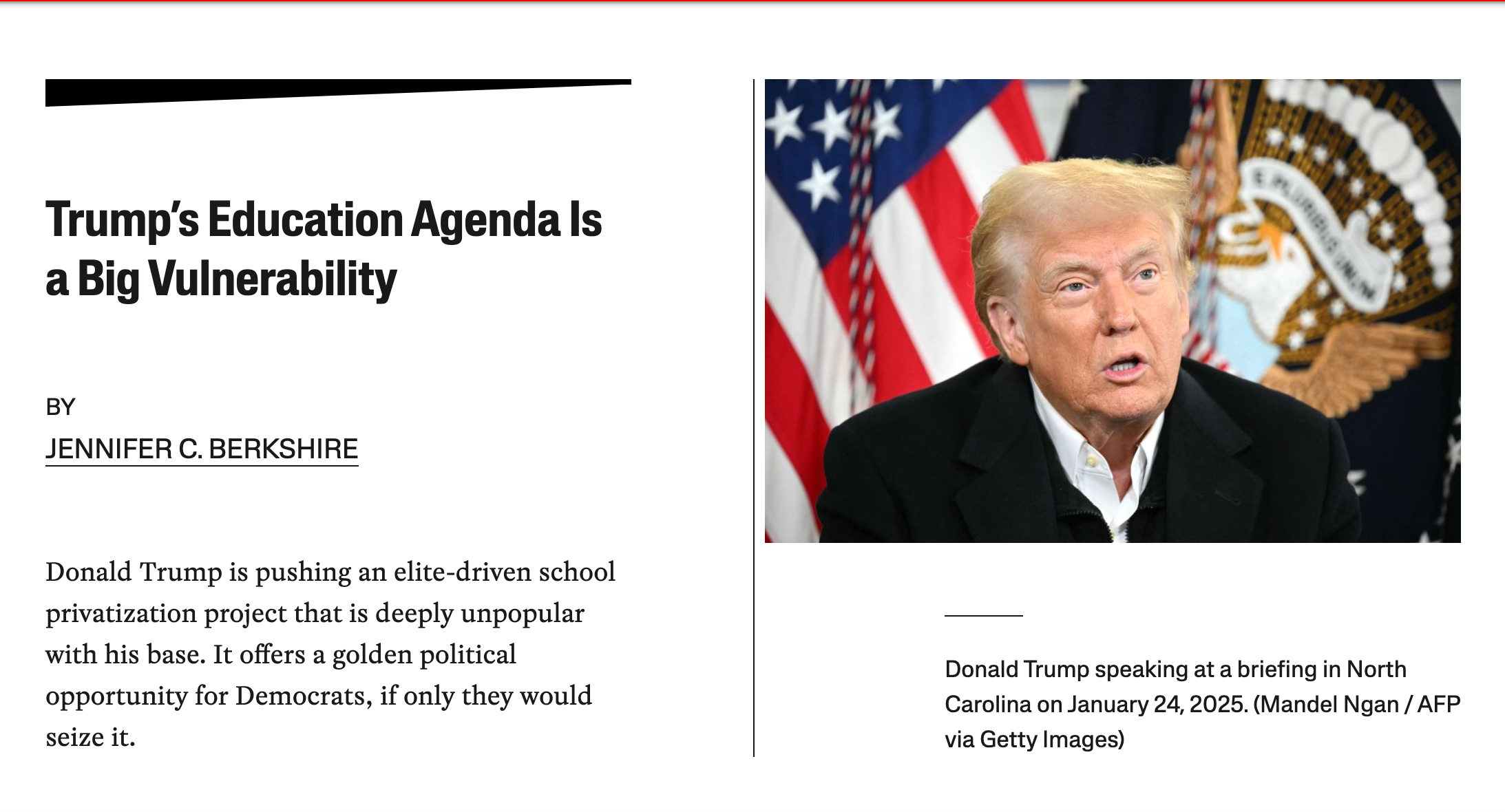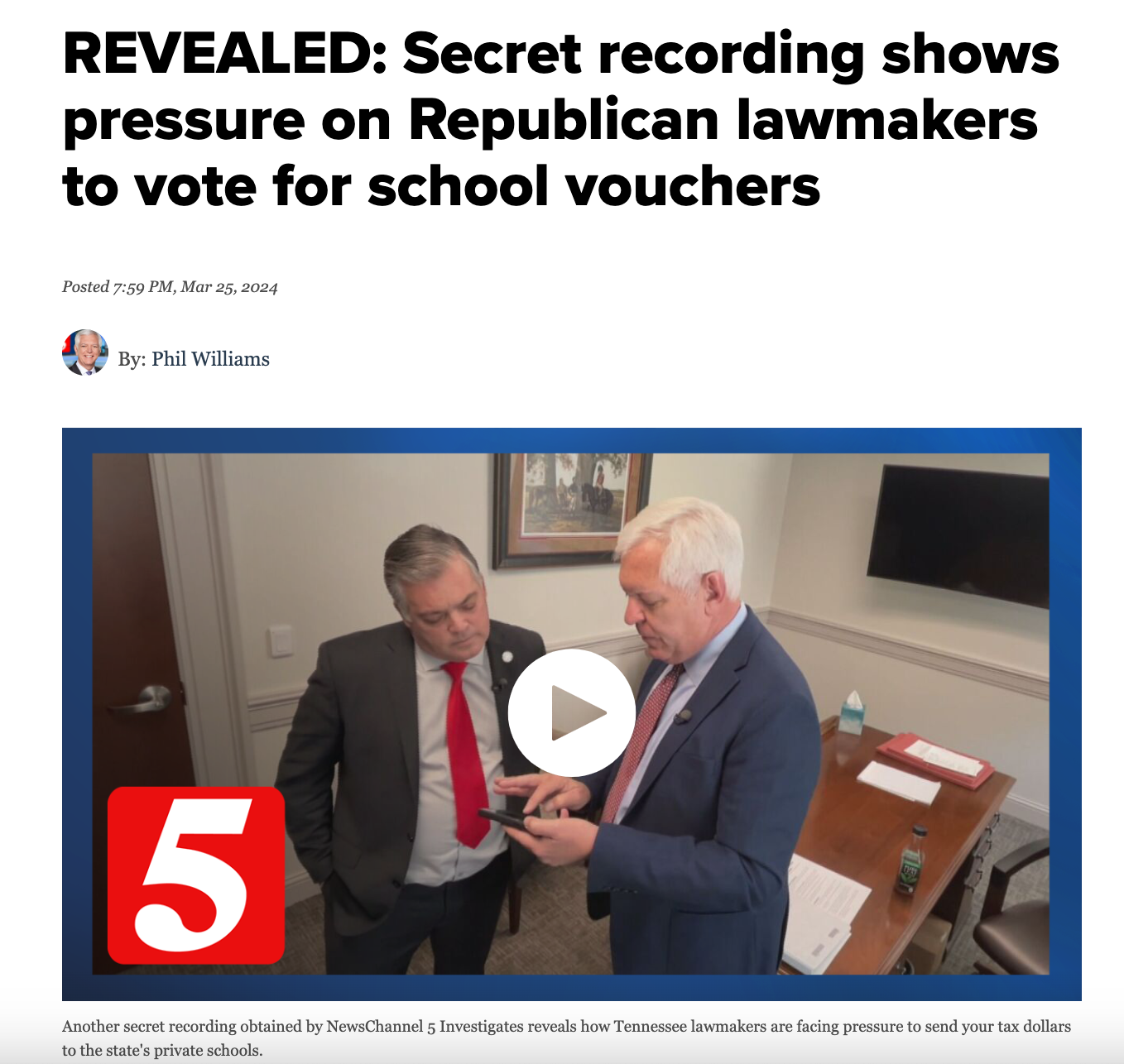
POLICYMAKERS
Policymakers, your leadership is instrumental in addressing the critical challenges posed by voucher programs, which threaten the foundational principles of equity and integrity within our public education system. These comprehensive resources provide information on a range of topics from how voucher programs impact students and public schools to understanding voucher expansion in other states. Ultimately, these tools will help inform your key policymaking decisions and the future of public education.Your decisions have the profound capacity to influence the future of education, steering it toward a landscape where every student benefits from equal access to opportunities and a nurturing learning environment. Here are a few resources as a starting point.
School vouchers allow families to use public funds to pay for their children’s private school tuition. School voucher programs enacted across the country – using tax credits, grants, and savings accounts to divert public funding to pay for private education – have consistently demonstrated that states with voucher programs tend to expand the programs over time. These expansions dramatically increase the amount of public funds diverted to private education while state investments in public education remain stagnant or decrease. Despite the numerous negative consequences of using publicly funded vouchers to pay for K-12 private education expenses,1 policy makers across the country continue to propose similar programs.
Policymakers join parents, students, educators and allies to discuss how the national private school voucher program in the budget reconciliation bill would shift resources from public schools to wealthy people and private schools.
Donald Trump is pushing an elite-driven school privatization project that is deeply unpopular with his base. It offers a golden political opportunity for Democrats, if only they would seize it.
We cannot afford to fund two school systems — both our public system and a private system — especially when one has such little accountability or measurable return on investment. Programs like this have decimated budgets in state after state, and we believe Nebraskans demand more responsible decisions be made with their tax dollars.
Arizona does no vetting of new voucher schools. Not even if the school or the online school “provider” has already failed, or was founded yesterday, or is operating out of a strip mall or a living room or a garage, or offers just a half hour of instruction per morning. (If you’re an individual tutor in Arizona, all you need in order to register to start accepting voucher cash is a high school diploma.)
House Republican leadership want to include a $20 billion private school voucher program in the 2025 tax-reconciliation bill. Known as the Educational Choice for Children Act of 2024 (H.R. 9462 in the 118th Congress), it would give away $5 billion per year for each of the next four years of federal taxpayer dollars to fund private school vouchers. Instead of directing resources to the public schools that 90% of American children attend, vouchers divert critical federal dollars to students already attending private schools and to schools that can cherry pick which students they want to educate.
Pennsylvania Gov. Josh Shapiro is being eyed as a potential Democratic vice presidential nominee, but with that attention has come intense scrutiny of his support for a traditionally conservative idea: taxpayer-funded private school vouchers.
The Kentucky General Assembly enacted a private school voucher program in 2021 and legislation was filed to expand the program before the state Supreme Court struck it down for violating Kentucky’s constitution. That decision led directly to the legislature putting Amendment 2 on the ballot. Similar states that lack Kentucky’s constitutional protections for public education have recently increased spending on vouchers and school privatization at a rapidly growing cost to their budgets. Given that history and context, it is plausible to assume the legislature will pursue a similar path if voters approve the amendment.
Across the US, right-wing state legislatures have disregarded popular will to enact costly school privatization plans. In North Carolina, they flouted democracy to advance their agenda.
Another secret recording obtained by NewsChannel 5 Investigates reveals how Tennessee lawmakers are facing pressure to send your tax dollars to the state's private schools.
In the recording, the lead lobbyist for a well-financed group lobbying for school vouchers warns a reluctant lawmaker that his job could be at stake if he doesn't vote the way she wants him to vote.
Florida receives an F on an A-F scale on all three funding metrics: funding level, funding distribution, and funding effort.
Since 2019, the flow of public funds to private education dramatically increased after the State Legislature enacted the Family Empowerment Scholarship (FES) program.
This toolkit is designed as a resource to help legislators and pro-public education advocates oppose attempts to create new or expand existing private school voucher programs.
In recent years, a network of anti-public-education politicians and lobbying groups has been emboldened in its push for private school vouchers. Billionaires like the DeVoses, including former Education Secretary Betsy DeVos, the Kochs, and the Waltons are spending hundreds of millions of dollars on these campaigns. These funders are using their war chests to lobby for voucher bills in state legislatures, contribute to the political campaigns of pro-voucher candidates, and seed astroturf petition drives to put vouchers on the ballot.
This webpage from Public Funds Public Schools is a useful tool for policy makers to filter through research on school voucher programs.
The PFPS bill tracker monitors all 50 states and the U.S. Congress for proposed legislation that creates, expands, or modifies private school voucher programs. Use the tracker to search for bills by number or keyword or to filter by state, year, and/or PFPS-assigned categories.














